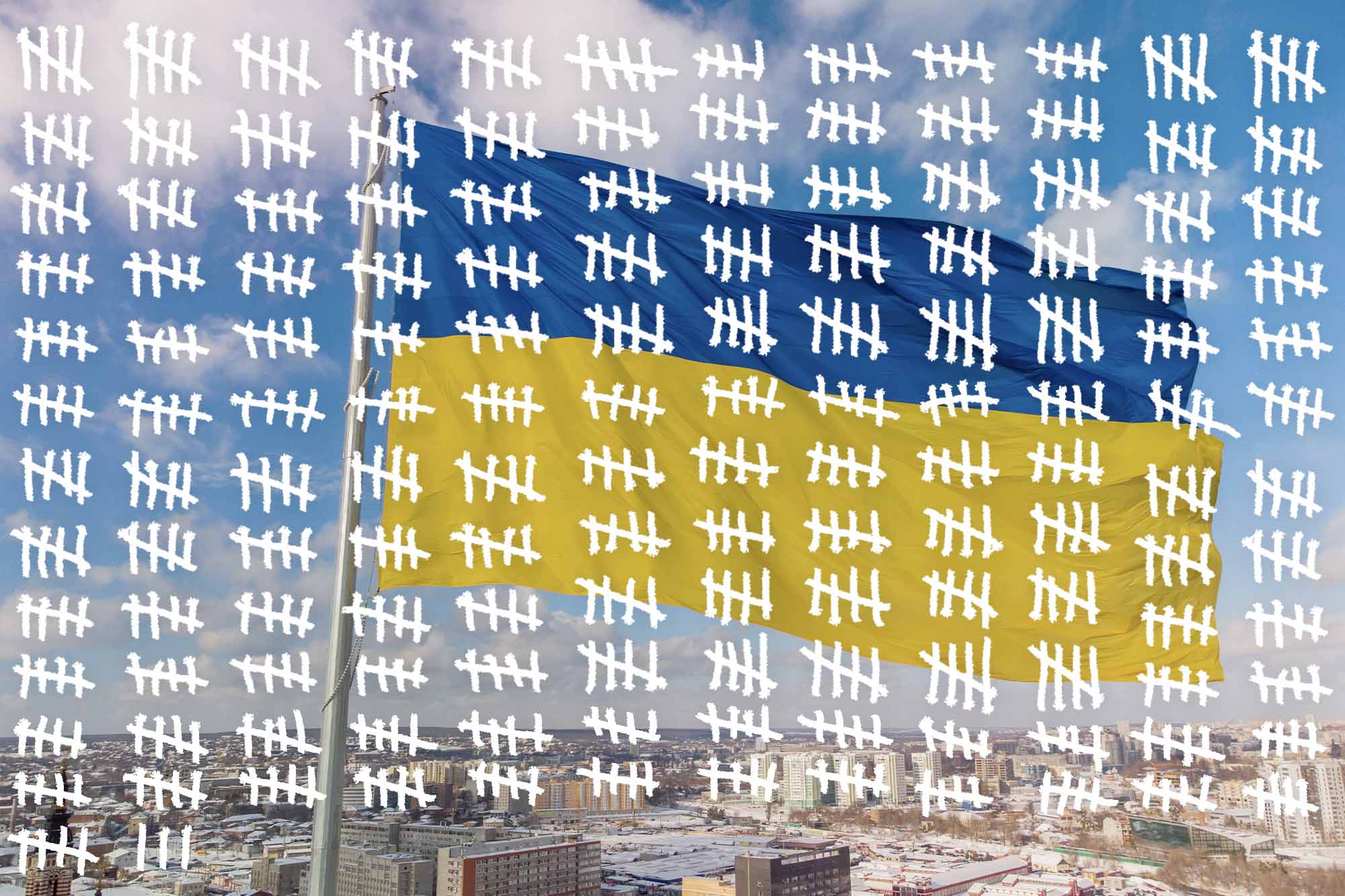Antholis has been the managing director of the Brookings Institution, served the National Security Council, worked G8 summits and has consulted with both Russia and Ukraine on energy issues.
Q. It’s been two years since the Russian incursion into Ukraine. Where do things stand at this point?
A. The war has been revealing and largely destructive for Russia, which had a terrible first year when it was on offense, a better second year when it was defending what it had seized, but it still has an uncertain future.
Russia is closer to China, and much closer to Iran and North Korea. Russia needs China to sell it energy and basic trade, but Russia hasn’t gotten as much military, technological or even moral support from the Chinese as it expected. Russia started the war with the hope of a partnership without limits with China, and limits have crept in.
On the U.S. side, the NATO alliance is stronger, wider and deeper than before the war. If Ukraine continues to exist, which seems to be likely, it is certainly part of NATO’s orbit and maybe will join NATO.
So, after two years, Russia has some gains, but not only did it not get what it wanted, it has been set back in a few regards. Russia has also lost close to 100,000 people, either killed or injured.
For Ukraine, it has been almost as devastating. Ukraine survives as a sovereign nation, but it probably lost about the same number of people to death and casualty. It is low on supplies and troops.
Q. How strong is European support for Ukraine? And does that depend on U.S. support?
A. Europe provided 50 billion euros – at current exchange rates, about $60 billion – in support for Ukraine, roughly the size of the package Congress is considering, mostly on the military side. If the United States doesn’t provide support, some people might think the EU would back down as well. I think the contrary.
The EU is starting to imagine what might happen if funds don’t come this year from the United States, and if President Donald Trump is elected, there’s a Republican Congress and funds don’t happen next year as well. The early signs are Europe is now thinking about what it means to be a European alliance without the United States.
Q. What is your prognosis for current and future U.S. aid to Ukraine?
A. It’s very complicated and arcane. The Senate seems poised to approve a military aid package in the range of $60 billion. Originally, that funding included economic assistance for Ukraine. I think Europeans stepping up on economic assistance takes some of the pressure and political liability off those funds.
As that money shifts more to the military side, it has a much higher chance of passing in the Senate. The big challenge is in the House of Representatives. There is almost no doubt that there is a majority in the House of Representatives to approve that same aid package for military assistance, but there is doubt that a majority within the Republican Party would approve that.
As long as House Speaker Mike Johnson thinks that the majority of his caucus opposes it, he’s going to be very reluctant to put it forward. Then again, he can’t afford to lose his moderates. If his moderates complain loud enough that this is going to threaten them when they go to the polls in November, they may force him to allow the aid measure to go to the House floor for a vote.
Q. How are these political fluctuations being viewed in both Ukraine and Russia?
A. It’s certainly making Ukrainians nervous and Putin gleeful. What gives Ukrainians pause and worry is where politics in the United States is going. That said, both Russia and Ukraine should be cautious about not overplaying their hands. Majorities in the United States exist for supporting Ukraine and seeing Russia as a major threat to U.S. national security, and that will persist indefinitely. How that leads to support for Ukraine and against Russia is a big wild card.
It is a reality of our politics that we remain more pro-Ukraine than I think we remain pro-Israel, and there is greater consensus supporting Ukraine than there is on a single approach to securing the border, the other great national security issue that’s dividing the country.
Q. Can Russia maintain its relations with China, Iran and North Korea, considering the issues these countries face?
A. With respect to Iran and North Korea, the ties are definitely strengthened. Putin is in the fight for his life and these are important life rafts for him. Chaos in the Middle East helps Putin in many regards. It takes the war in Ukraine out of the headlines in the West, which makes it harder to get support for Ukraine. It strengthens Iran’s need to have friends in the world.
And Iran is providing things, such as drones, for the Russians. The same with North Korea. North Korea now has a steady, reliable buyer for its weapons and a cheaper source of energy in Russia. And for North Korea, having another source of energy is a valuable thing.
All of these countries have tricky relationships with China. Iran now only has one place to sell its oil, because sanctions have been restored and aren’t going away. China is its buyer for oil, and China can buy it at a much cheaper rate than Iran used to be able to sell it on the open market.
China has to be very careful to not be seen as supplying weapons or technology to either Iran or Russia because they don’t want further sanctions and decoupling from the U.S. and European trading partners. Mexico has become the biggest trading partner with the United States – it’s no longer China – so China is walking a tightrope.
Russia also is losing one partner that it had in the past, Israel. Israel feels that it’s fighting for its life and Russia doing business with Iran means that Israel’s ties to Russia and vice versa are under strain.











